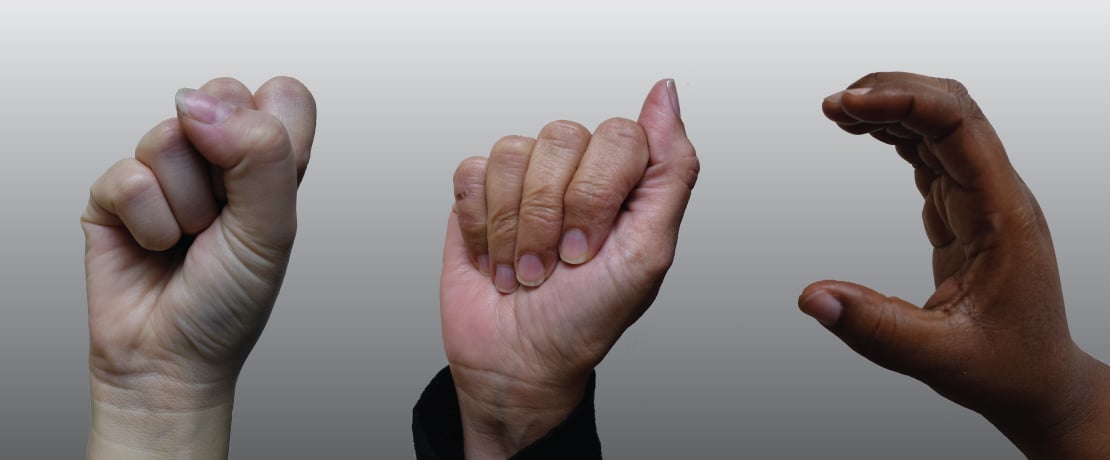
American Sign Language and Interpreter Training
Interpret oral or sign language, or translate written text from one language into another.
|
Jobs available locally 664 |
Demand Locally +1 % |
Annual Wage Range $23,988 – $109,754 |
Teach languages and literature courses in languages other than English. Includes teachers of American Sign Language (ASL). Includes both teachers primarily engaged in teaching and those who do a combination of teaching and research.
|
Jobs available locally 10,941 |
Demand Locally +2 % |
Annual Wage Range $49,252 – $183,647 |
Design or conduct work-related training and development programs to improve individual skills or organizational performance. May analyze organizational training needs or evaluate training effectiveness.
|
Jobs available locally 4,215 |
Demand Locally +2 % |
Annual Wage Range $30,113 – $107,926 |
Program Level:
Degrees, Certificates
Program Type:
Face-to-Face
Department:
Languages and Philosophy
Institute:
Creative & Communication Arts
College:
SAC
What is the American Sign Language Program?The American Sign Language Program is part of the Languages & Philosophy Department at SAC. The A.A.S. in Deaf Support Specialist is a two-year program that teaches the skills needed to work with the unique American Deaf Community. The program provides a supportive, immersive learning environment that moves students directly into the workforce as advocates, members of educational teams, and more. With five additional courses students may then pursue an AAS in ASL Interpreting.
What will I learn?ASL Communicator Level I Certificate: Our Level I Certificate prepares individuals to communicate between Deaf and hearing individuals. This certificate prepares individuals for employment to communicate with the Deaf and Hard of Hearing communities in a variety of settings. Employment within these settings include educational, retail, and administrative office settings. Deaf Support Specialist Track: Our Deaf Support Specialist A.A.S. prepares students to graduate with a degree that will move them directly into the workforce. Students will learn laws and resources required to navigate the obstacles encountered by Deaf individuals as well as assisting the Deaf in educational settings and more. Interpreting Track: As an interpreting student, you'll gain the expertise required to facilitate communication between Deaf and hearing individuals. The program covers ASL, the interpreting process, the interpreting profession, Deaf culture, and various specialized interpreting settings. Admission into the Interpreting program requires prerequisite courses as well as in house screening.
|
What can I do with this course of study?AAS: Deaf Support Specialist Degree: This degree prepares you for roles as an advocate, job coach, mentor, and paraprofessional for Deaf individuals, supporting them in various aspects of their lives and work. AAS: Sign Language Interpreter Degree: This degree prepares you for an entry-level career as an interpreter in diverse settings such as education and community services. The high demand for interpreters offers numerous part-time and full-time job opportunities.
What is special about our program?Our ASL Program stands out for being accredited by the Commission on Collegiate Interpreter Education, as well as being rated Exemplary by Texas Higher Education Coordinating Board. Additionally, our ASL language courses may count as foreign language credits to transfer for university credit. |
- American Sign Language: Deaf Support Specialist, A.A.S.
- American Sign Language: Sign Language Interpreter, A.A.S.
- American Sign Language Interpreter Training Enhanced Certificate in Educational Interpreting
- American Sign Language Interpreter Training Enhanced Certificate in Specialized Interpreting
- American Sign Language Communicator, Level I Certificate
Deaf Support Specialist
A Deaf Support Specialist (DSS) is responsible for advocating, educating and promoting community awareness on the issues that pertain to the Deaf, hard-of-hearing and hearing communities. Their duties involve assisting Deaf and hard-of-hearing consumers with independent living skills, informing them of community services, and educating them in terms of their rights as they relate to the Americans with Disabilities Act. Additionally they can assist in locating the latest rehabilitative and/or assistive technological devices. A DSS is not a Sign Language Interpreter; although, some interpreting may be required which is why our program requires that DSS take Interpreting I to become familiar with the interpreting process. A DSS may also work as a cultural mediator when working with consumers who are Deaf, hard-of-hearing and hearing.
A DSS may find employment in a variety of settings. They can work in the educational field as a paraprofessional, tutor or educator. Additionally they can also work as a job coach for companies or government agencies that employ Deaf or hard-of-hearing individuals. They may also have the opportunity to work for an agency or organization that provides an array of services for the Deaf and hard-of-hearing community.
This degree may also benefit students who plan on pursuing their Bachelor’s degree in a field where they encounter deaf or hard-of-hearing consumers. Those occupations may include Deaf education or special education teacher, social worker, counselor, and vocational rehabilitation counselor.
The pay rate for a Deaf Support Specialist will depend on degrees and/or certifications held as well as years of experience.
American Sign Language Interpreter
A qualified Sign Language Interpreter is responsible for facilitating communication between consumers that are Deaf, hard-of-hearing and hearing by interpreting between English and American Sign Language. Interpreting refers to the process of preserving the meaning from one natural language to another natural language. When we interpret, it involves the unrehearsed, not written (i.e., spoken or signed) conversion of a message from one language (called the source language) to a second language (called the target language). (Department of Linguistics and Interpreting Gallaudet University, 1991) A Sign Language Interpreter must also act as a cultural mediator when working with consumers who are Deaf, hard-of-hearing and hearing.
The demand for interpreters allows for a variety of job opportunities, either part-time or full-time. There are a number of settings for a Sign Language Interpreter to find employment such as educational, community, video relay, medical, legal, mental health/psychiatric, religious and performing arts. An interpreter also has the opportunity to be self-employed and work as an Independent Contractor or a Freelance Interpreter for various companies and/or government agencies. The pay rate for a Sign Language Interpreter will depend on certification level, degrees held, location (urban vs. rural) and years of experience.
Below are additional web sites you may want to visit.
- ASLIT can award Credit for Prior Learning to those who hold a valid BEI or RID certification. Contact sacasl@alamo.edu for more information.
Accreditation
The American Sign Language programs at San Antonio College are accredited by the Commission on Collegiate Interpreter Education.
The program accreditation was most recently renewed in 2025.
The American Sign Language programs at San Antonio College located in San Antonio, Texas are accredited by the:
Commission on Collegiate Interpreter Education
4260 North Paseo de Los Rancheros Tucson, AZ 85745
(303) 365-7683
San Antonio College Accreditation
San Antonio College is accredited by the Southern Association of Colleges and Schools Commission on Colleges (SACSCOC) to award Associates and Baccalaureate Degrees. Questions about the accreditation of San Antonio College may be directed in writing to the Southern Association of Colleges and Schools Commission on Colleges at 1866 Southern Lane, Decatur, GA 30033-4097, by calling (404) 679-4500, or by using information available on SACSCOC’s website (www.sacscoc.org).
Normal inquiries about the institution, such as admission requirements, financial aid, educational programs, etc., should be addressed directly to the college and not to the Commission's office; the Commission is to be contacted only if there is evidence that appears to support an institution's significant non-compliance with a requirement or standard.
San Antonio College was established in 1925 and that year boasted 232 students and 46 instructors. In January of 1951, the college moved to its present location at 1300 San Pedro Avenue, just north of downtown.
Students who wish to view the school’s accreditation and licensing bodies documentation, may inquire at the reserve desk of the Learning Resource Center in the Moody Learning Center.
Contact Us
|
FOR PROGRAM & CEA D402 (Bldg. #19 next to UPS on Dewey) |
Jodie Finken |
To request an ASL Interpreter:
|
|
Michelle Payne |
John Mark Raymond |
Alaina Webb |
